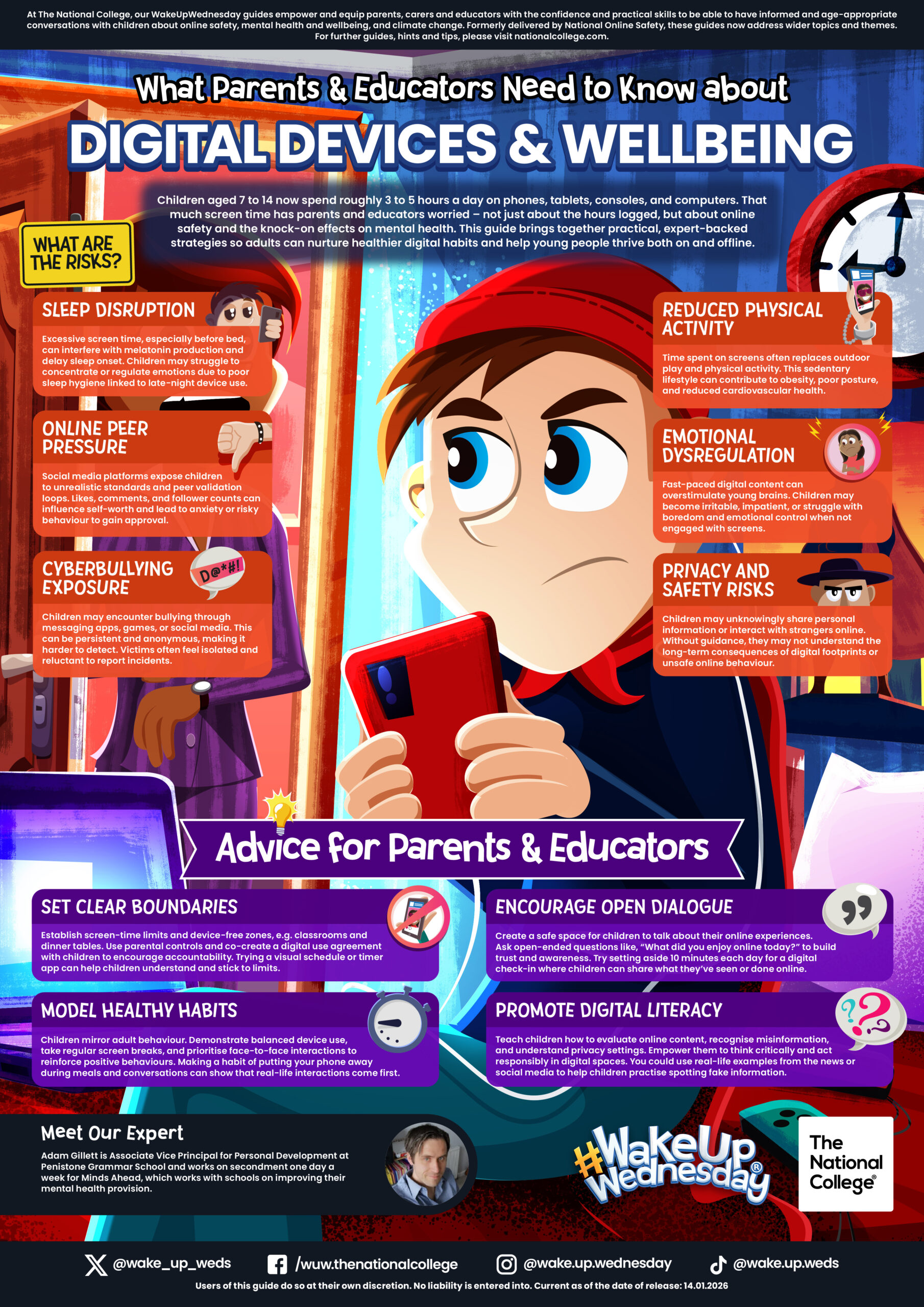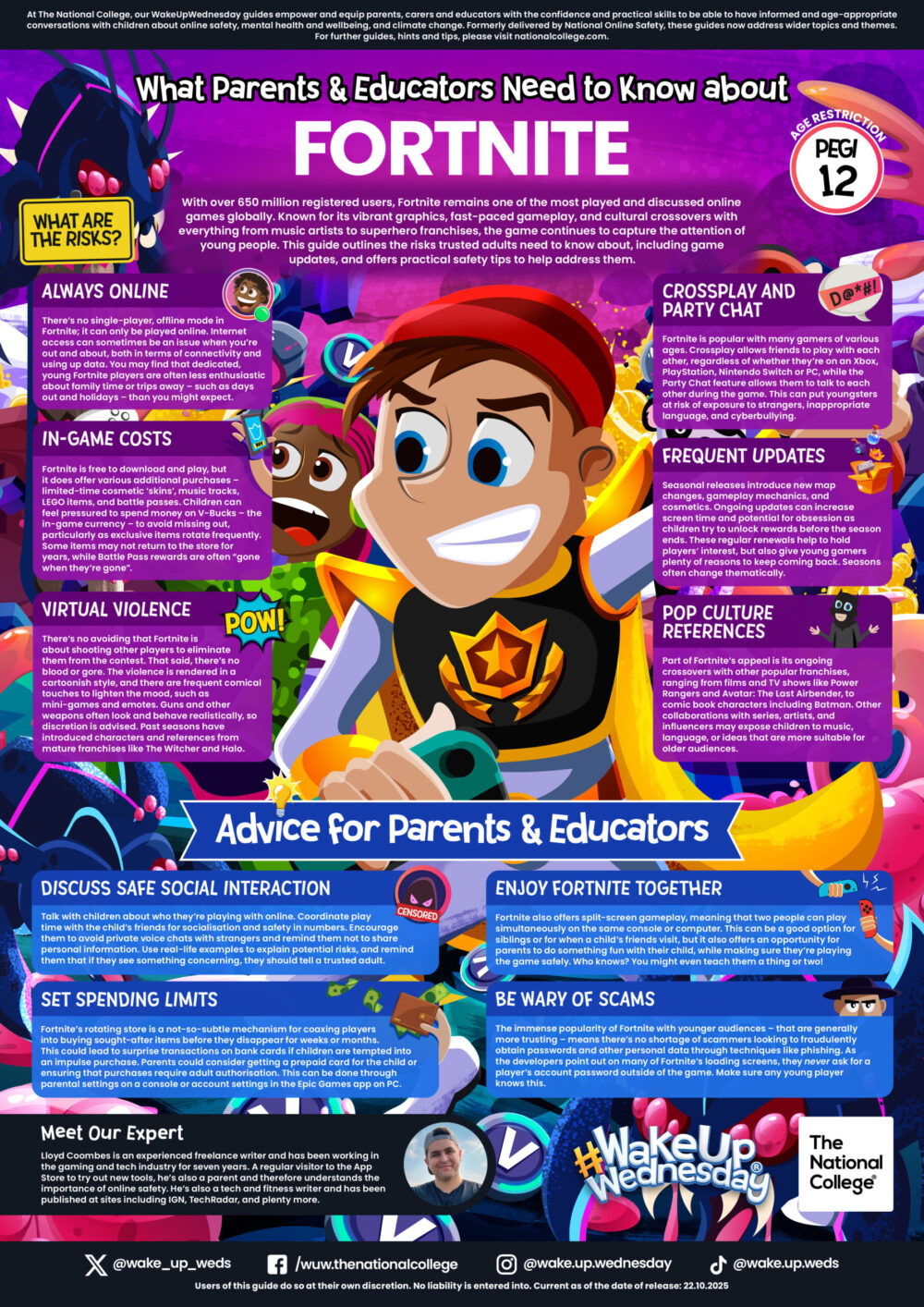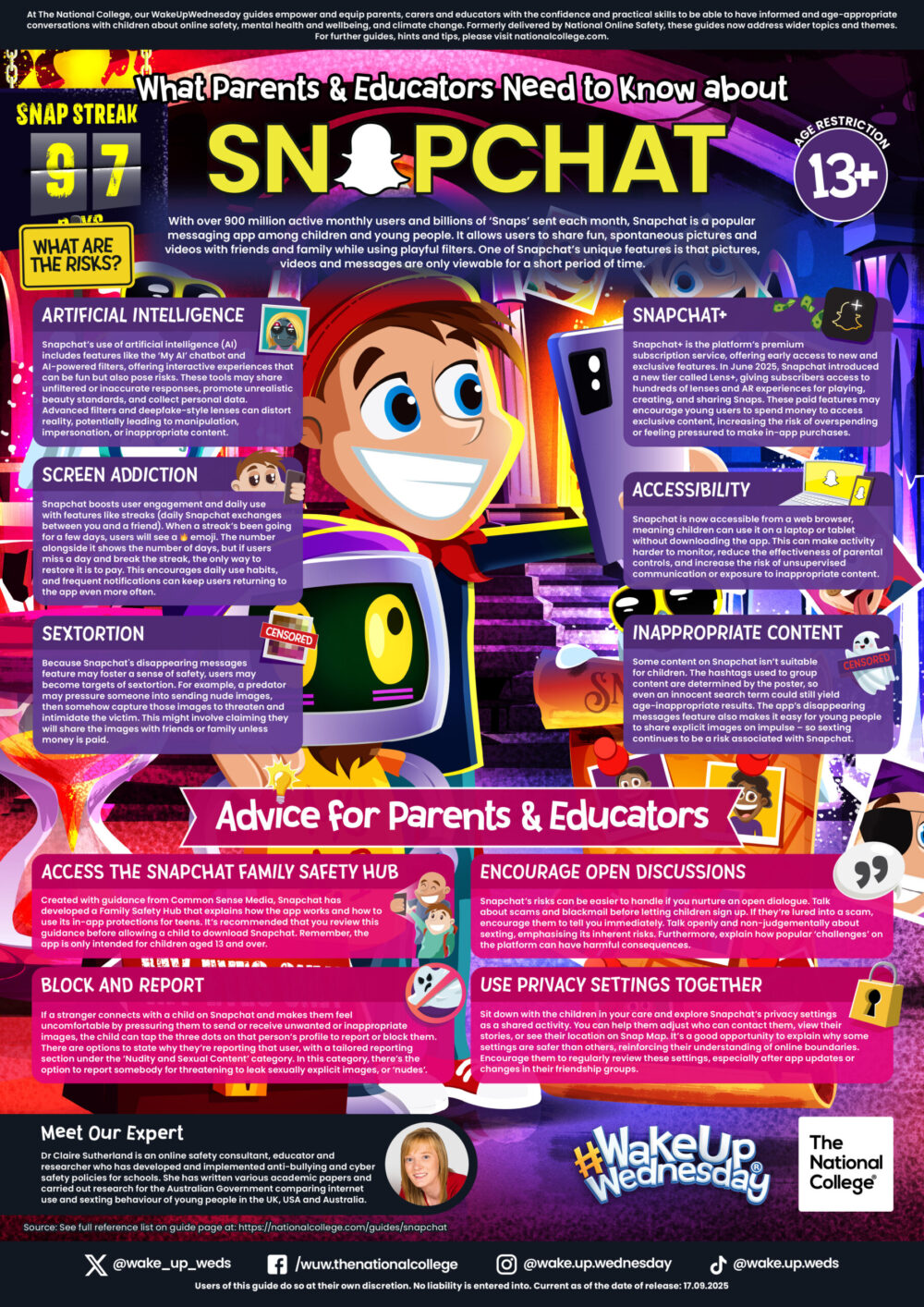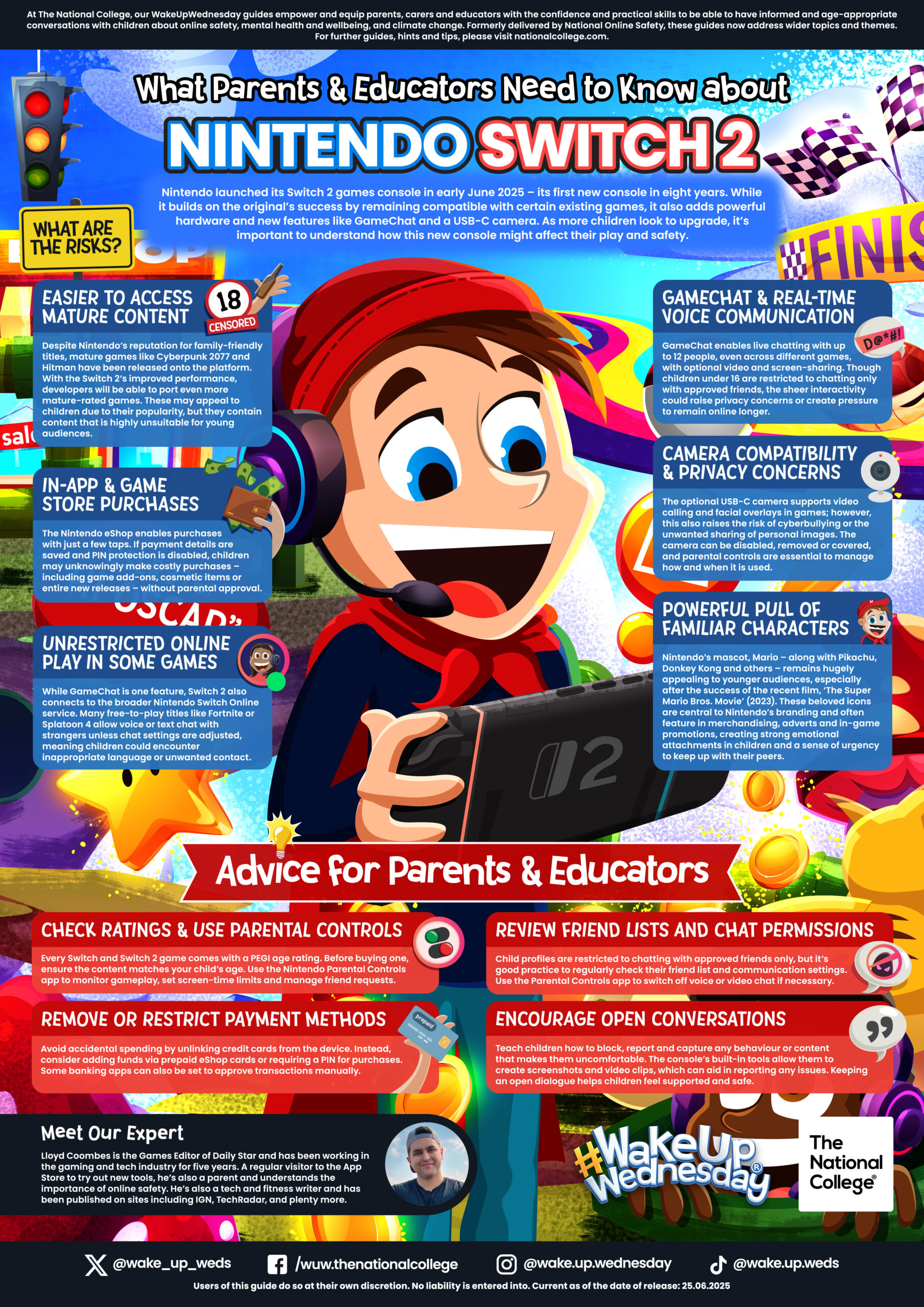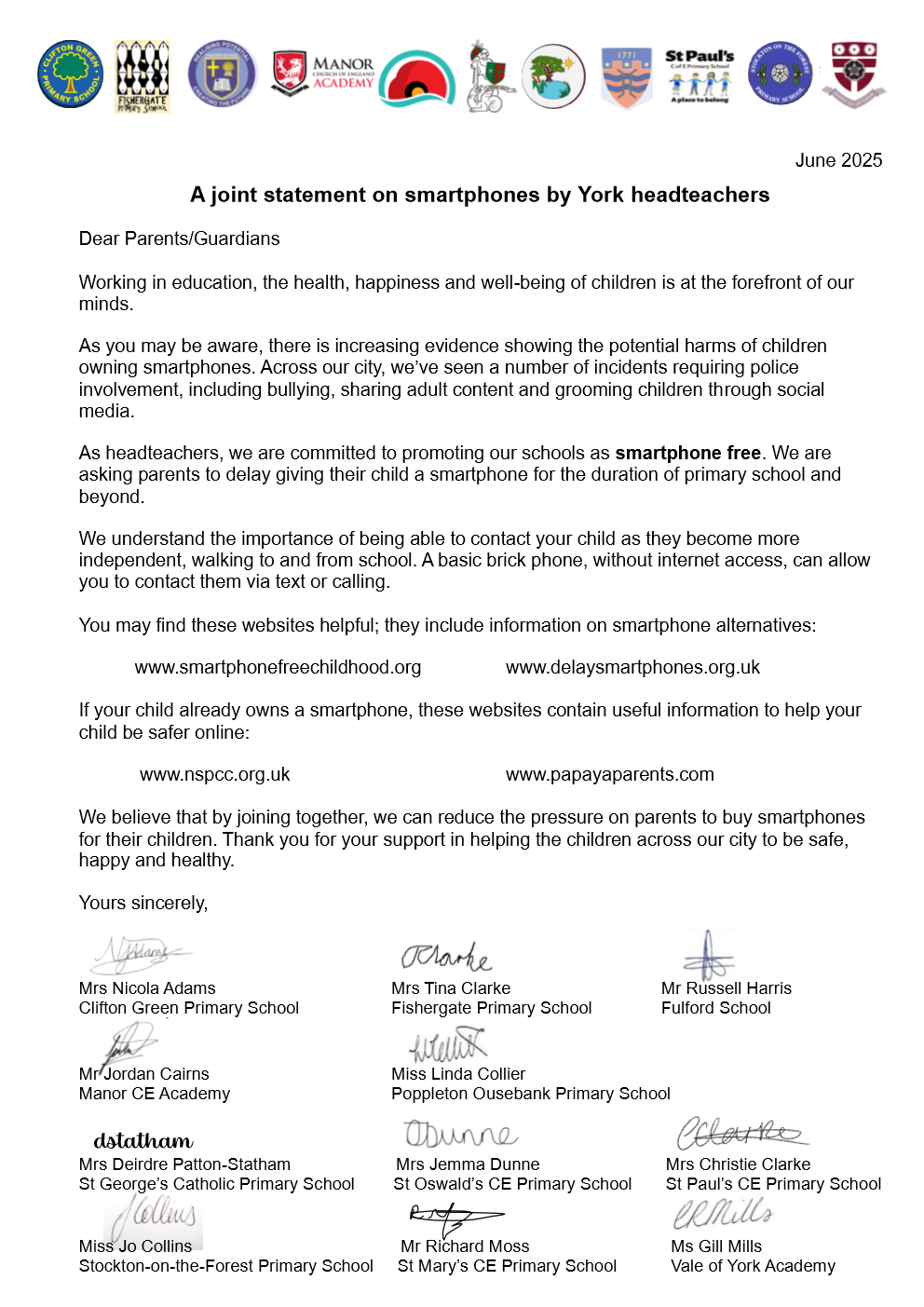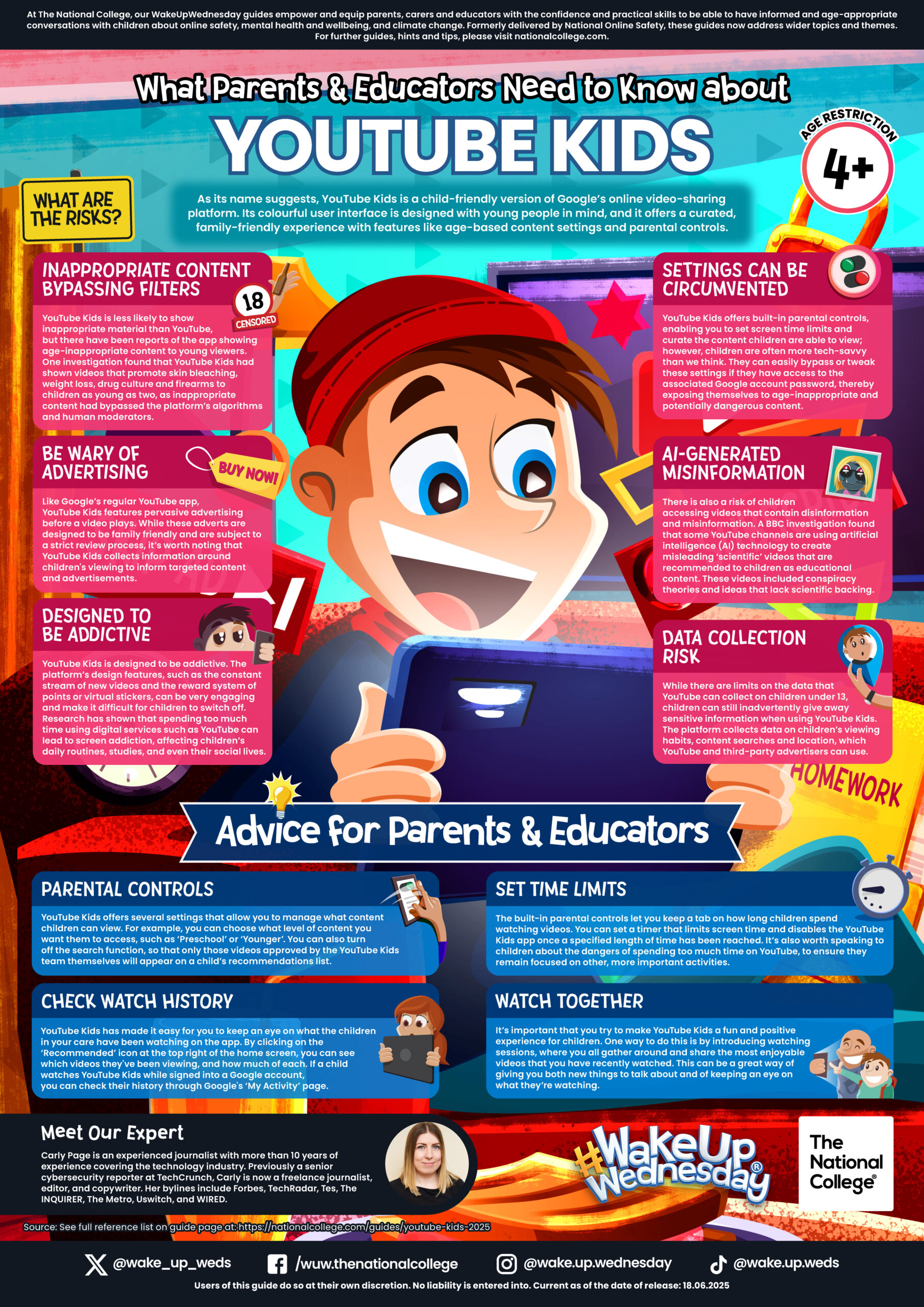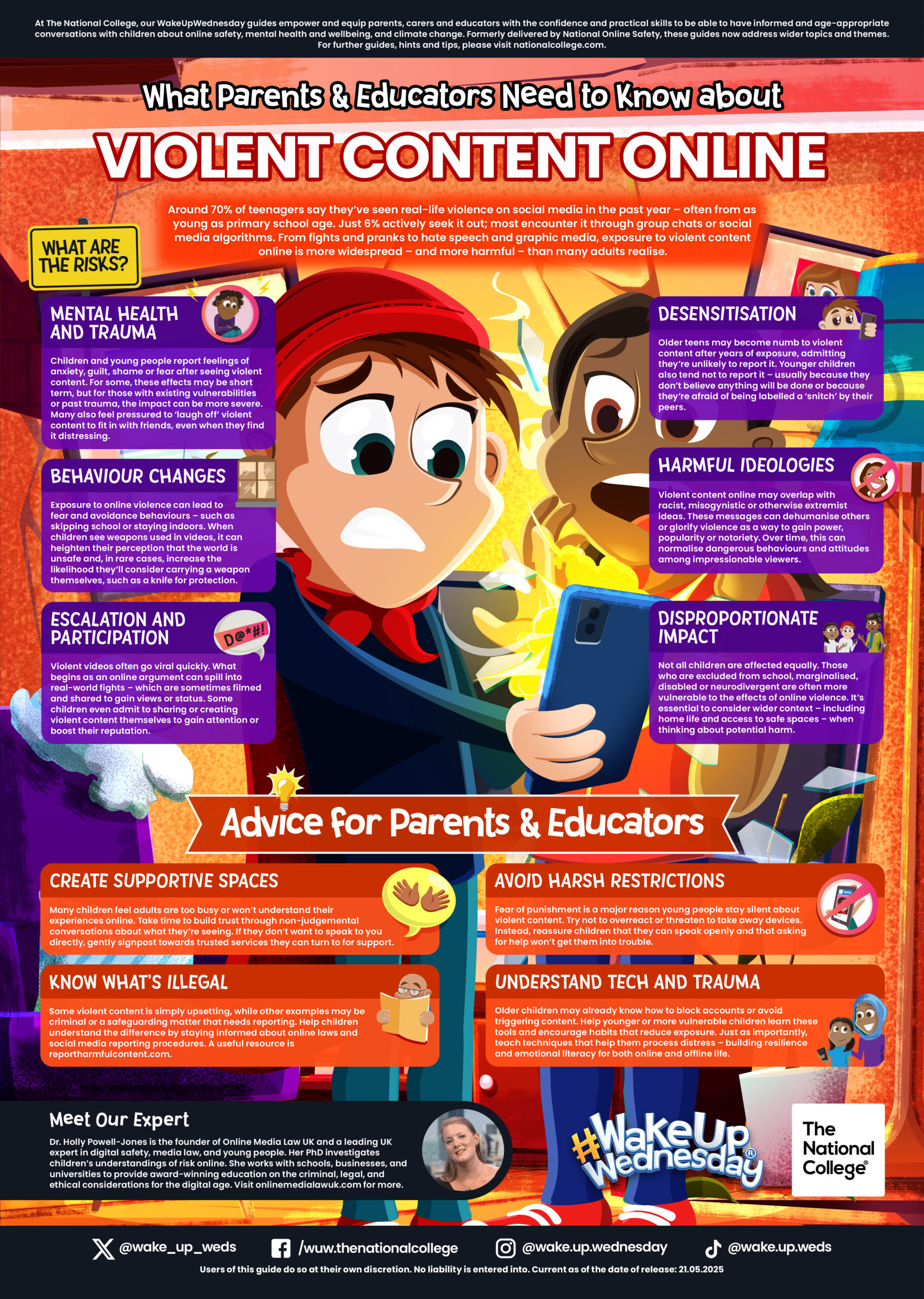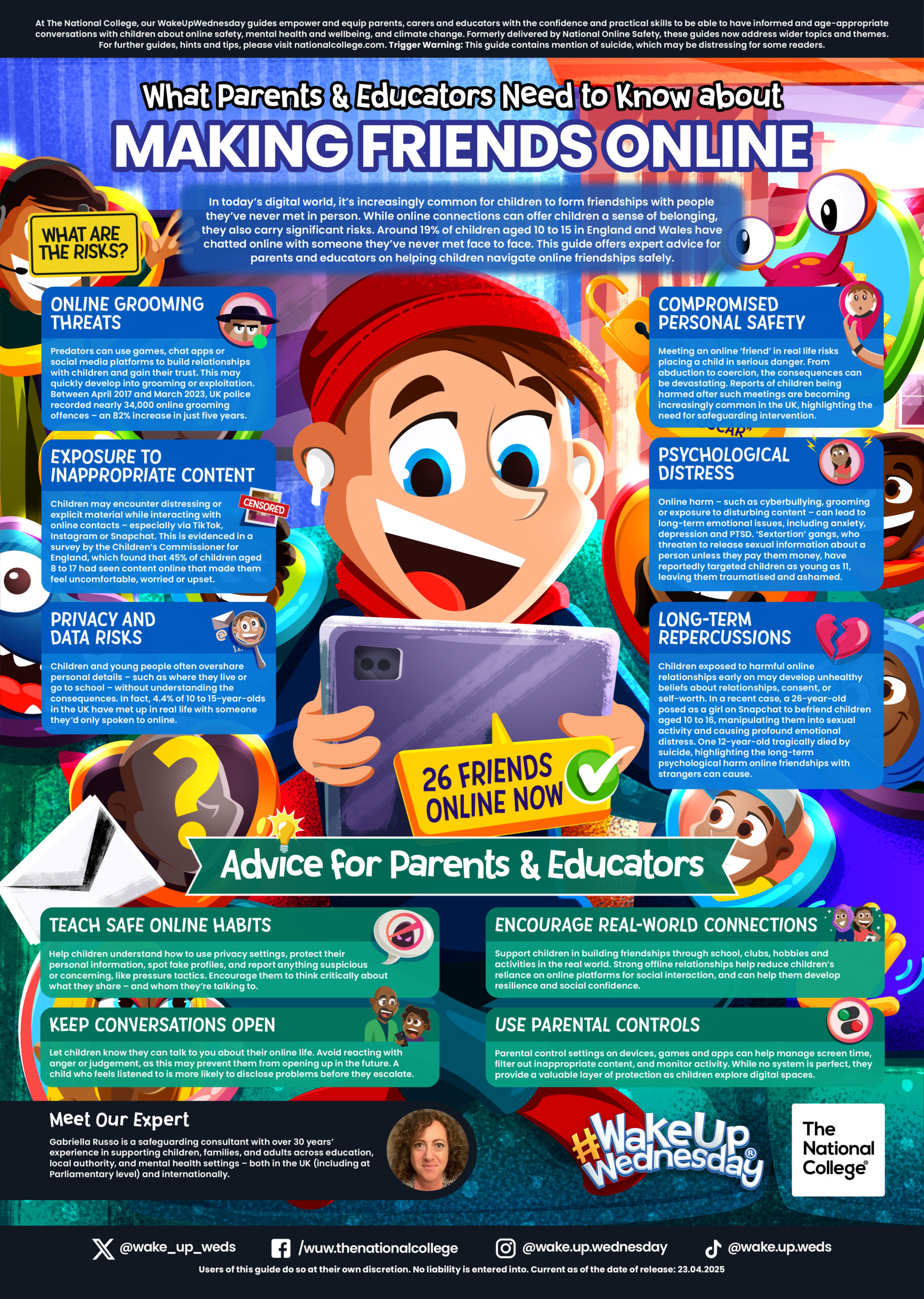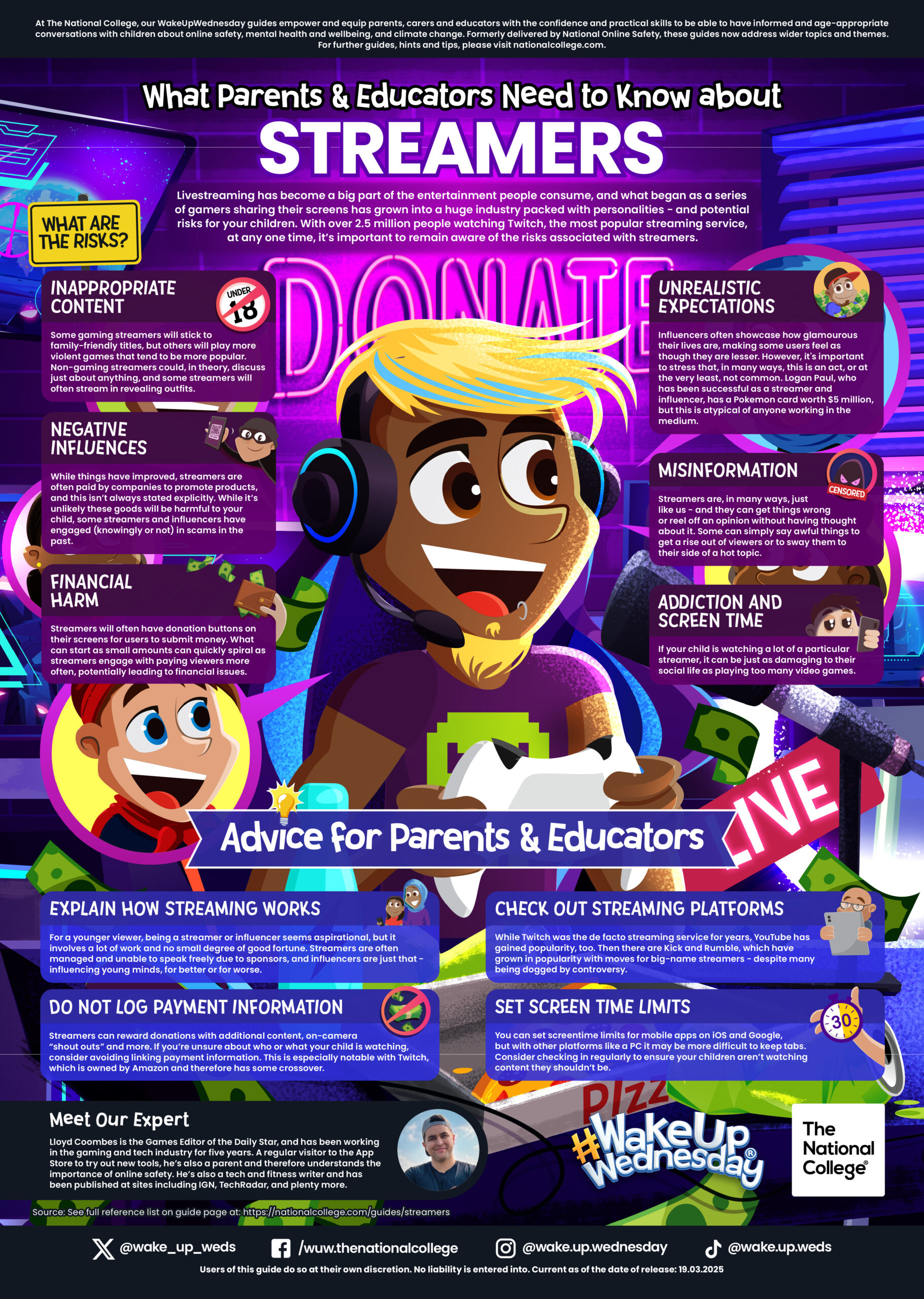Still the best-selling game of all time, Minecraft has hundreds of millions of players – making it more important than ever to stay informed. With its vibrant worlds 🌍 and endless potential for creativity 🧱 it’s no wonder Minecraft continues to capture young imaginations 💭
With the Minecraft movie hitting cinemas in April, interest in the game has remained strong🎬 But whether they’re mining resources or building digital castles, children could also encounter strangers, scary content or bullying behaviour online.
We’ve created this free guide offering parents and educators the latest top tips on how to keep children safe from issues like griefing, chat risks, and unintended purchases, while still embracing the game’s educational and creative benefits 🎮💡
Grab our guide below!National Online Safety
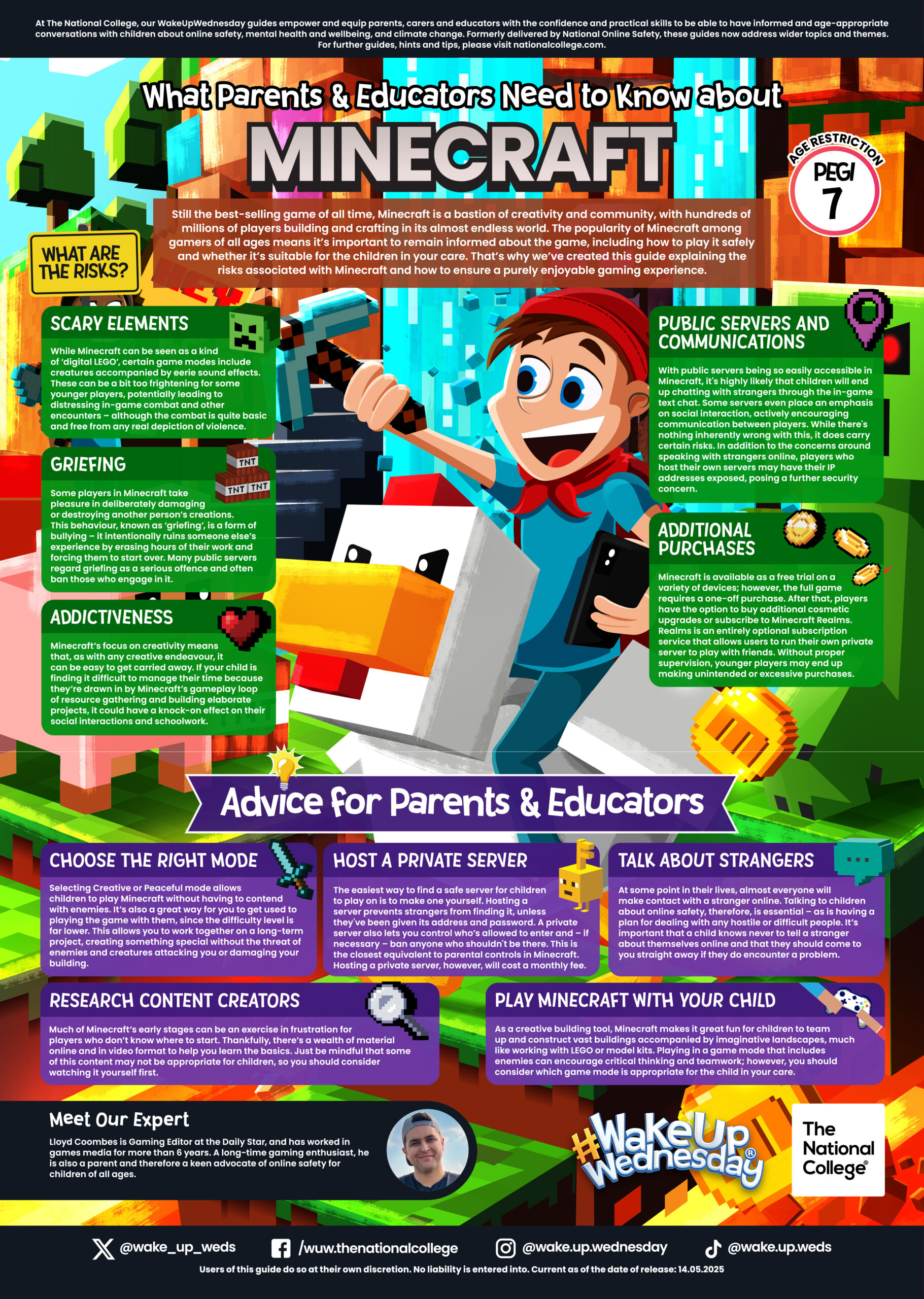
Click for a larger .pdf version!
This guide is from National Online Safety.

